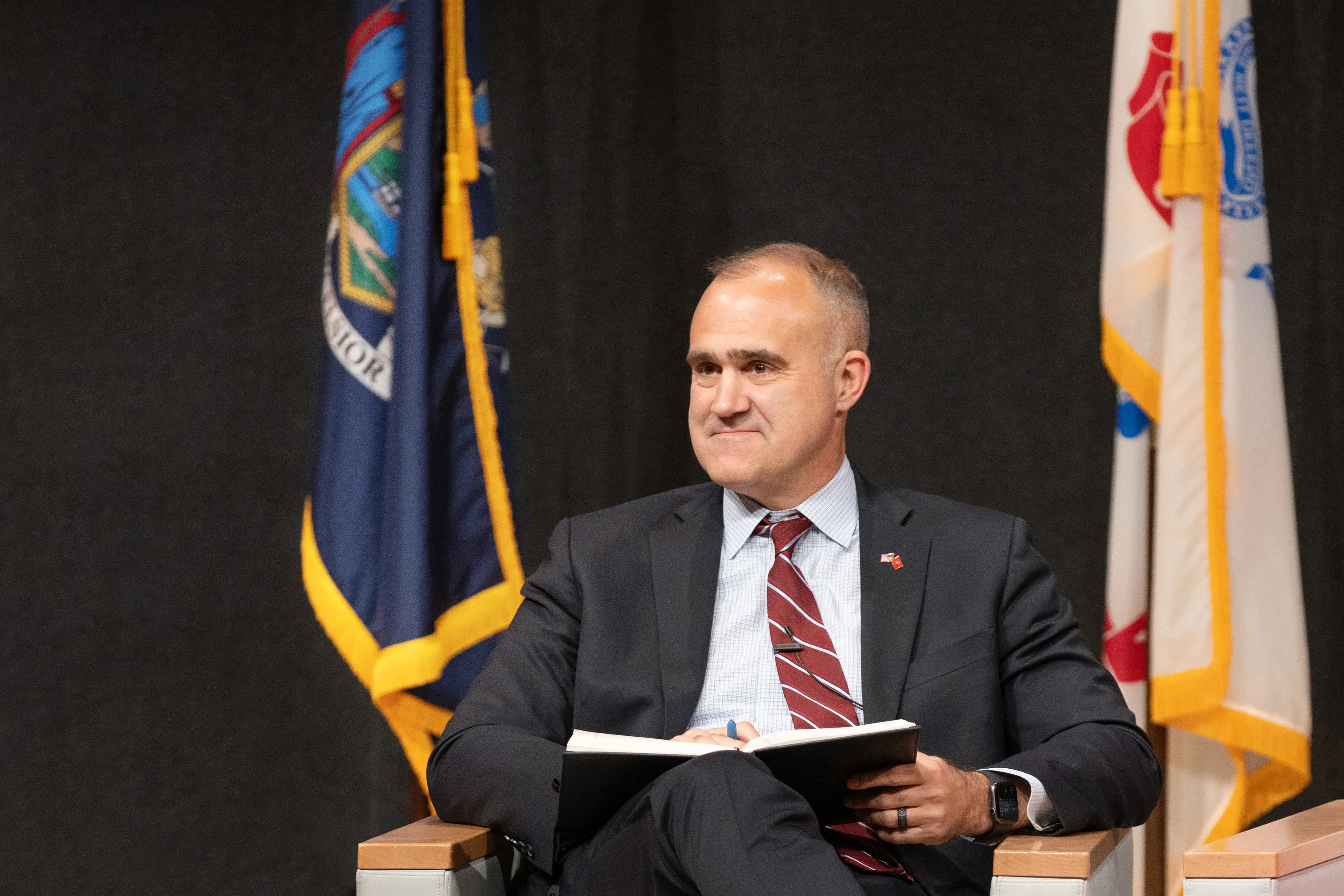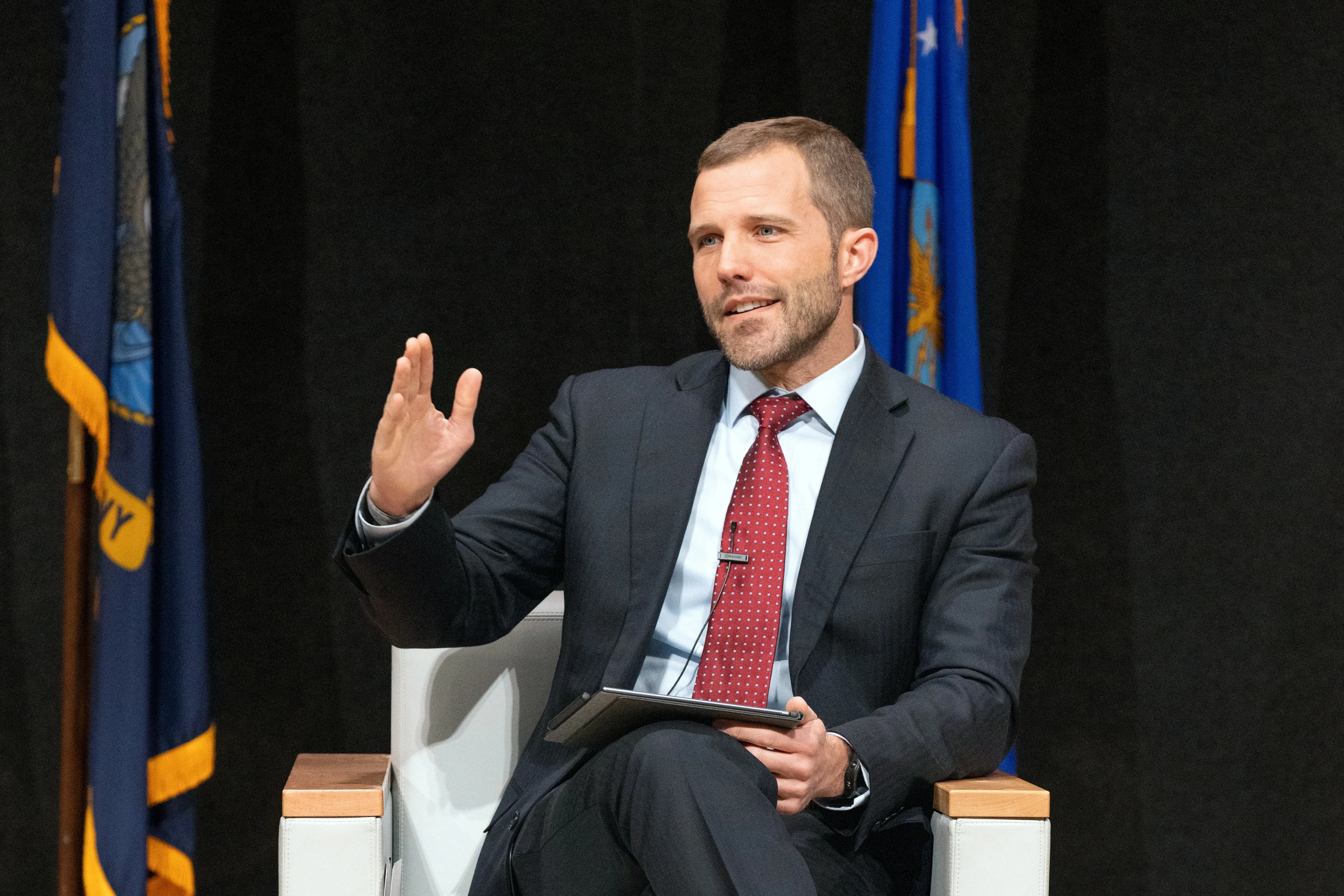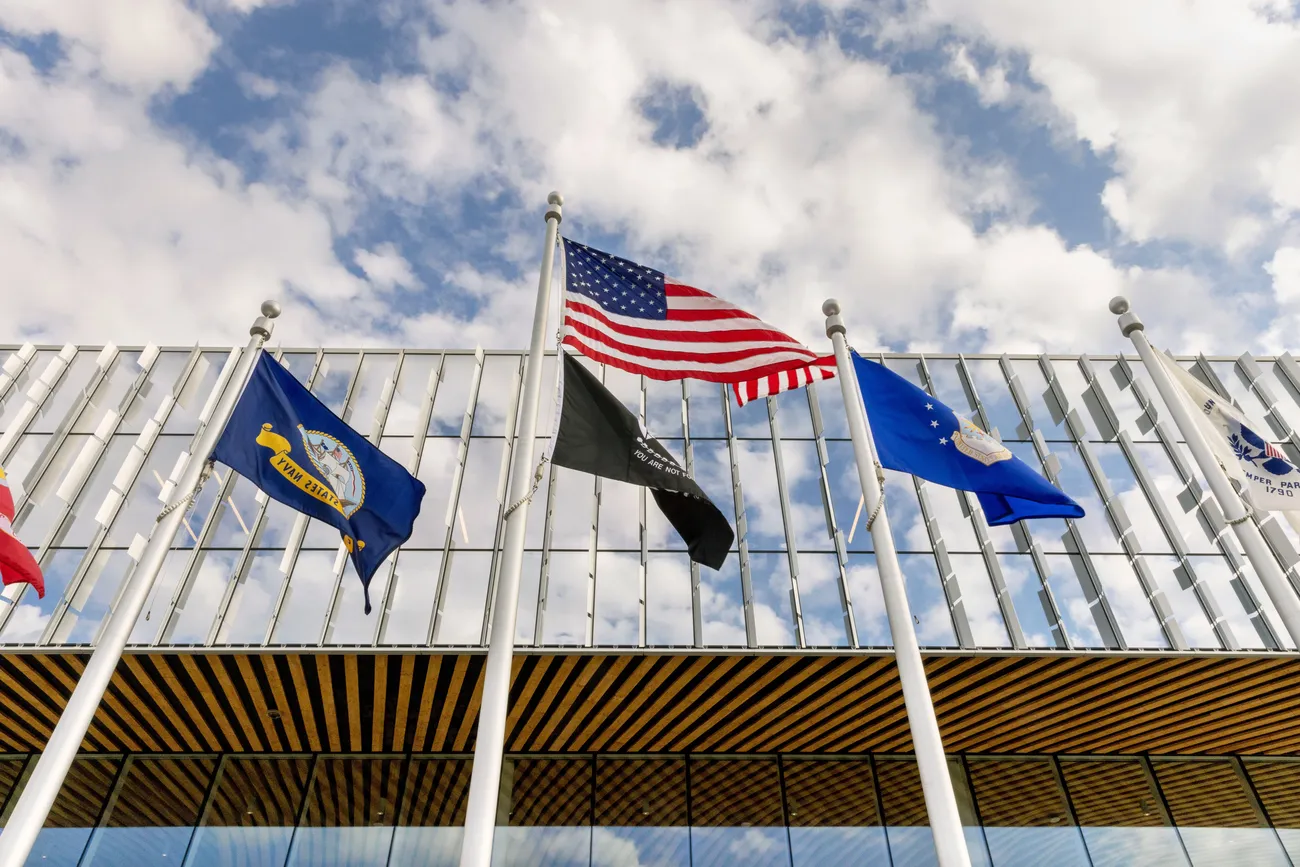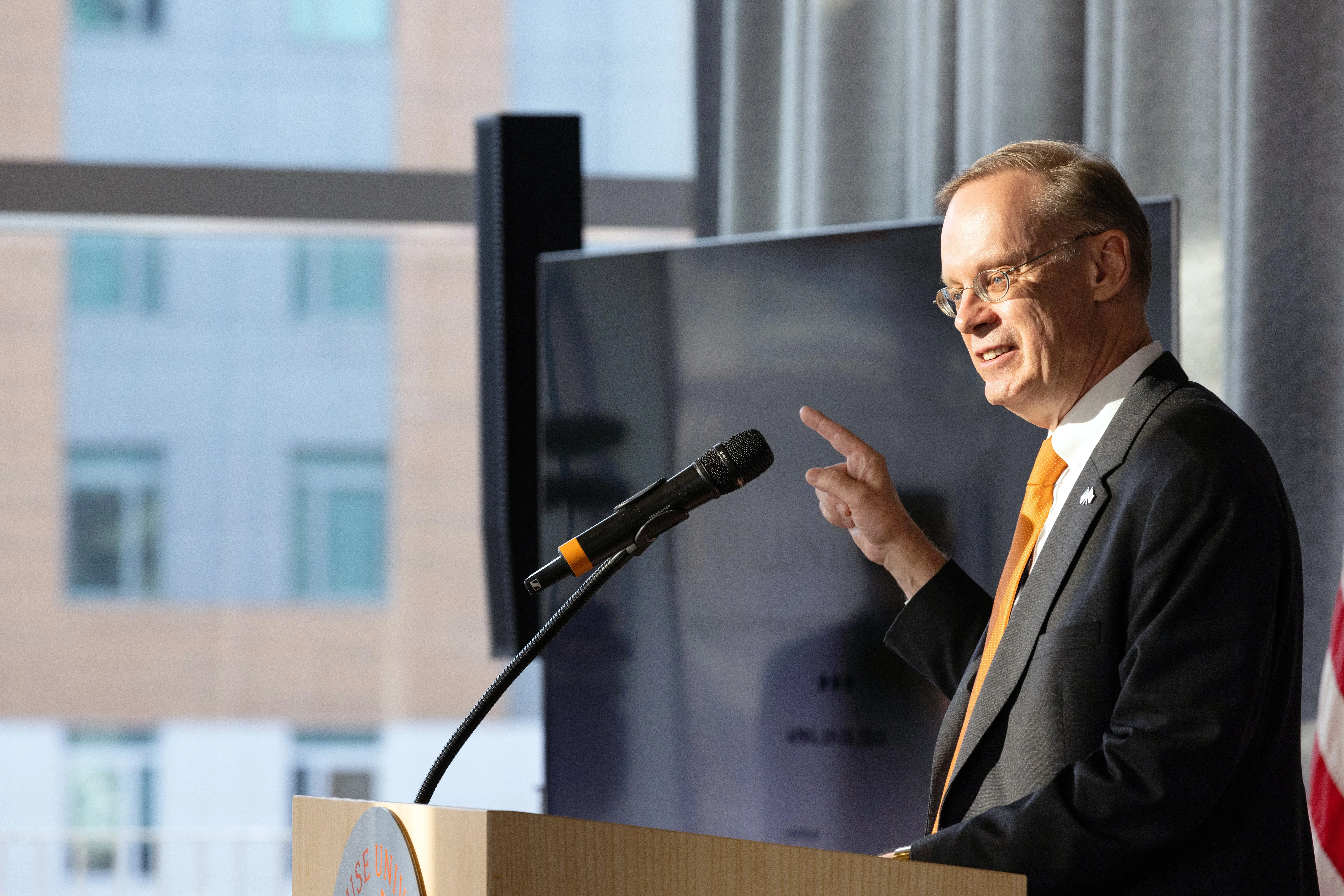Providing Access and Opportunity
Higher education and the military are bracing for a drop in the college-age population, due to declining birth rates since the Great Recession. Thus, improving higher education’s access to the Department of Defense is one way to offset potential recruitment and enrollment challenges. “Military-connected students require different systems and structures of support,” said Rochelle Ford, president of Dillard University, a private, historically Black institution in New Orleans. The former Syracuse professor added that asynchronous strategies, like independent and distance learning, can benefit those who don’t live near a military base.

Navigating the Bureaucracy
“Student-veterans are tired of being marginalized, that they’re a hero to be lauded or a victim to be helped,” said Matthew Amidon, a senior advisor at the George W. Bush Institute. The U.S. Marine Corps Reserve colonel urged the academy and Department of Defense (DOD) to “control the narrative” of the student-veteran experience. This includes teaching student-veterans how to navigate the DOD’s bureaucracy. “They need to understand the process and cost of earning a college degree,” Amidon continued. “Educational pathways are pathways to opportunity.”

Piloting the Future
Panelists agreed that in addition to the Department of Defense, the academy should cooperate more closely with the Department of Veterans Affairs (VA) to enhance learning outcomes. VA pilot programs—“small experiments” to determine what works and what doesn’t for student-veterans—are one approach. Academic leaders are also encouraged to play a more direct role in shaping student-veteran legislation. “We have an obligation to make sure that every member of our veteran community can reach their unique, full potential,” said University of Montana President Seth Bodnar, a U.S. Army veteran.

